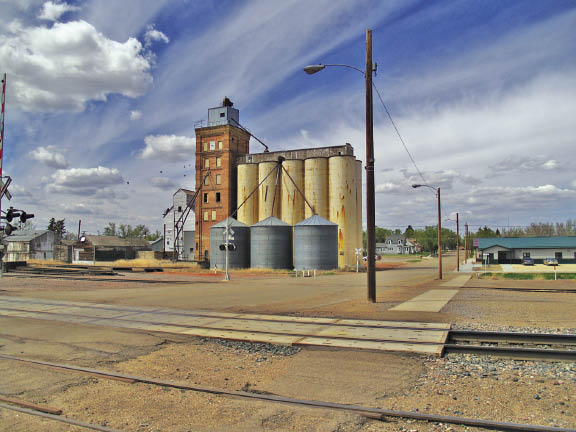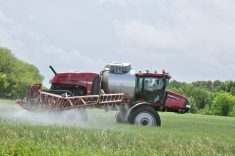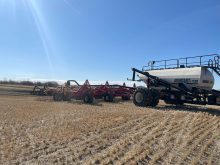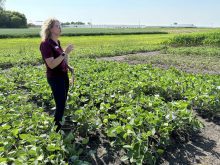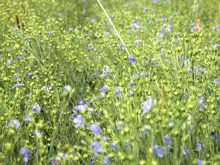Manitoba farmers who grew Faller from “brown-bagged” seed have a one-time amnesty allowing them to deliver the unregistered American red spring wheat to three ADM-Benson Quinn-affiliated facilities stateside until July 31, 2014.
“This is becoming a bit of a management nightmare for producers so they’ve got an option to clean up,” Lorne Hadley, executive director of the Canadian Plant Technology Agency said in an interview Nov. 21. “This is the time to take it.”
ADM will remit a nominal royalty on the Canadian Faller it purchases to the variety’s developer, the North Dakota State University (NDSU) Research Foundation, said ADM president Scott Nagel from his office in Minneapolis.
Read Also

Manitoba canola industry has new frontiers
Canola oil is still the main priority for the sector, but canola meal is increasingly the subject of research looking for new markets and uses for the oilseed’s byproduct.
“So it (Faller) will trade at a nominal discount to other Canadian-originated grain because of the royalty,” he said. “It’s not a huge royalty.”
Hadley said it’s the right thing to do because it compensates NDSU for its intellectual property.
“We don’t want to get the reputation as Canadians as taking someone else’s genetics and using them for free,” he said.
Several industry officials said farmers will likely earn more by delivering Faller to the United States under this program than by selling it at home.
As an unregistered variety, Faller must be graded “feed” when delivered to a Canadian elevator. The only exception would be for Faller grown from certified seed under an identity-preserved (IP) contract in 2013 with Richardson Pioneer or Parrish & Heimbecker. The royalty is included in the purchase of certified seed.
Farmers who contracted to grow Faller are being paid prices comparable to those for registered varieties in the Canada Western Red Spring wheat class.
High U.S. premium
Moreover, market experts say prices American elevators right now are paying are 65 cents to $1 a bushel higher than in Manitoba. The gap could be because elevators here are plugged following a record harvest.
Just being able to deliver wheat will be attractive to some farmers.
“The three elevators that they (Canadian farmers) are going to, have been built within the last five years that are very fast, high speed,” Nagel said. “It will be a 10- to 15-minute max in and out. You’re dealing with your driving time down and you won’t wait in line.”
While it’s legal for western Canadian farmers to grow unregistered wheats, they must declare them when they deliver to a Canadian elevator. And the buyer is obliged to give it the lowest grade in the class the wheat is being delivered into.
In the past that almost certainly meant a lower price for unregistered wheats, but now in an open market buyers and sellers have more flexibility to negotiate a price, no matter the grade.
However, it is illegal to import an unregistered variety for seed to grow a crop. Clearly, some people broke the law since crop insurance records show Manitoba farmers declared they planted 42,178 acres of Faller wheat this spring. About 16,000 of those acres were grown under contract and comply with Canadian and American plant breeders’ rights rules.
Assuming an average yield of 50 bushels an acre, there could be more than two million bushels of Faller wheat in Manitoba bins and almost 40 per cent of it grown from common seed and because of breeders’ rights rules normally ineligible to be exported to the U.S.
Faller is popular among farmers and processors. Farmers like the 15 to 20 per cent yield advantage over Canadian wheat varieties.
Bakers like the quality of the bread made from Faller, even when its protein is down, said John Smith, president of Seed Depot, the Pilot Mound company with the Canadian distribution rights for Faller seed.
One shot to get it out
Under breeders’ rights law NDSU has the authority to block imports of Canadian Faller wheat that was not grown from certified seed, said NDSU Research Foundation executive director Dale Zetocha.
“Our intent is not to allow any Faller from any illegally obtained seed after the 2013 year,” he said. “They’ve got one shot to get it out of their system. And if they want to continue to grow Faller they need to secure certified seed from John Smith. You have a way for getting right with the system, but it’s not our intent at all to do that in the future.”
Smith is working to get Faller registered in Canada, probably in the Canada Prairie Spring wheat class because of its lower protein content.
Last year Faller was grown under IP contracts and that’s the plan for 2014. Smith said details will be announced in a month.
“We anticipate it will be bigger and better than last year,” he added.
Smith said all the royalties being collected by ADM are going to NDSU, not to his company.
“They need those revenues to keep going,” he said. “We need to support them so they keep producing new varieties.”






